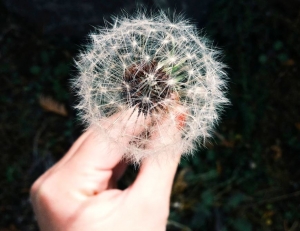The following article was kindly written and contributed by Cassie Steele.
Health professionals often recommend getting out into the open air to boost your mood, but what happens if your allergies don't allow you to do so?
Seasonal allergies are only one type of allergy that people battle of course, and all forms of allergies can affect your wellbeing in many ways. One study undertaken at Columbia University, for instance, found that children with food allergies are more likely to have anxiety. If you are one of the 4.1 million Australians who are battling allergies, it is important to know how your condition can affect your mental health so you can take steps to address these specific challenges and enjoy a better quality of life.
Allergies and Anxiety
As mentioned above, children who are allergic to food like nuts and gluten can have special needs that can make them fearful of indulging in foods outside the home. In the Columbia University study, scientists found that allergies often involve additional expenses, special food requirements, the cost of buying EPI pens, etc. All of these factors can heighten levels of anxiety in children and their parents — especially in families with fewer financial resources.
Allergies in Teens
Allergy-related anxiety can occur in all age groups, including teens. As found in a 2018 study published in Annals of Allergy, Asthma and Immunology, despite the fact that allergies are often classified as a ‘minor’ condition, they are linked to higher rates of anxiety and depression in teens. The lead researcher of the study stated, "The emotional burden of hay fever can be huge for adolescents." He added that teens can sometimes exhibit more impulsivity and anger than their allergy-free counterparts.
Taking Proactive Steps
Any treatment that can reduce symptoms should be embraced - not only owing to the physical alleviation they offer, but also because of their impact on mental wellness. A study shared by researchers at the American College of Asthma and Immunology showed that allergy shots (or immunotherapy) can significantly reduce anxiety and depression in people who are allergic to insect stings. It makes sense considering that the mere fear of being stung by wasps and other insects can in itself be a trigger for depression and anxiety.
Keeping Your Home Clean
Even if you know you are allergic to an outdoor allergen such as pollen, keeping your home spic and span is equally important, as you could also be allergic to household toxins such as mould. A groundbreaking study published in 2007 found that mould is actually linked to depression — and if you live in a humid home with basements and other dark areas, mould could actually worsen existing allergy-related mental conditions. Keeping your home free of mould spores is easy if amounts are low. However, if you suspect the problem may be rampant, then having professional testing and consultation will allow you to elicit if a professional clean is necessary.
Embracing Holistic Stress Busters
Numerous studies undertaken over the past two decades have pointed to holistic practices such as meditation, yoga, and Tai Chi as powerful weapons against stress hormone, cortisol. One 2018 study published in Frontiers in Physiology showed that yoga and meditation bring about important changes, improving heart rate variability in addition to lowering stress hormone levels. Additional research by a team at Johns Hopkins Medicine found that just half an hour a day of meditation can improve anxiety and depression.
Having allergies can increase the likelihood of anxiety and depression, thus affecting overall health and wellness. If you have allergies and you have symptoms of either condition, seeing a professional is key, so you can embark upon a strategy to address the condition itself in addition to your allergies. Mindfulness meditation and yoga are two oft-recommended remedies for stress, but there are so many more ways you can battle this trigger — including nature walks, art therapy, and even indulging in your favourite hobby!
v\:* {behavior:url(#default#VML);}
o\:* {behavior:url(#default#VML);}
w\:* {behavior:url(#default#VML);}
.shape {behavior:url(#default#VML);}